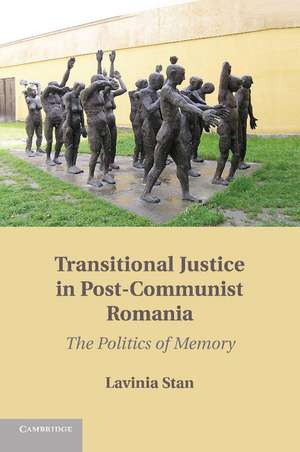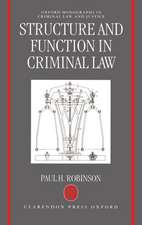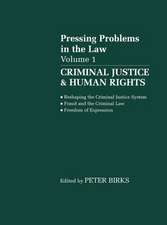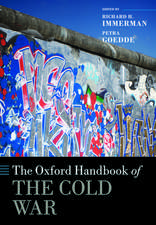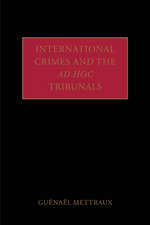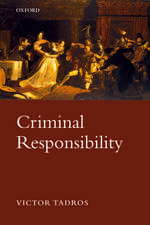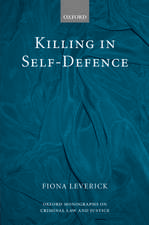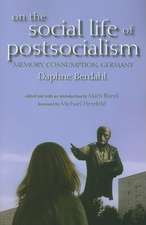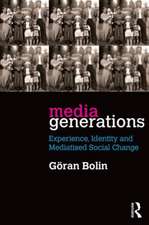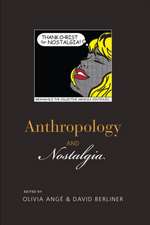Transitional Justice in Post-Communist Romania: The Politics of Memory
Autor Lavinia Stanen Limba Engleză Paperback – 9 iul 2014
| Toate formatele și edițiile | Preț | Express |
|---|---|---|
| Paperback (1) | 286.30 lei 6-8 săpt. | |
| Cambridge University Press – 9 iul 2014 | 286.30 lei 6-8 săpt. | |
| Hardback (1) | 725.57 lei 6-8 săpt. | |
| Cambridge University Press – 16 dec 2012 | 725.57 lei 6-8 săpt. |
Preț: 286.30 lei
Nou
Puncte Express: 429
Preț estimativ în valută:
54.79€ • 58.58$ • 45.68£
54.79€ • 58.58$ • 45.68£
Carte tipărită la comandă
Livrare economică 17 aprilie-01 mai
Preluare comenzi: 021 569.72.76
Specificații
ISBN-13: 9781107429253
ISBN-10: 1107429250
Pagini: 312
Ilustrații: 3 tables
Dimensiuni: 152 x 229 x 17 mm
Greutate: 0.42 kg
Editura: Cambridge University Press
Colecția Cambridge University Press
Locul publicării:New York, United States
ISBN-10: 1107429250
Pagini: 312
Ilustrații: 3 tables
Dimensiuni: 152 x 229 x 17 mm
Greutate: 0.42 kg
Editura: Cambridge University Press
Colecția Cambridge University Press
Locul publicării:New York, United States
Cuprins
1. Introduction; 2. Court trials; 3. Public access to secret files; 4. Lustration; 5. Truth commission and official condemnation; 6. Restitution of property; 7. Compensation and rehabilitation; 8. Rewriting history textbooks; 9. Unofficial projects; 10. Conclusion.
Recenzii
'Not only does this book expose many of the grimmer realities of Communist times in Romania but it also chronicles the ingenuity and brazenness of post-1989 decision-makers keen to indefinitely postpone a reckoning with their collective past. The rigour shown in analysing the laggardly response to transitional justice is sure to enable Lavinia Stan's book to be an important benchmark in the scholarly approach to the subject. … Very comprehensive in its scope, this is an impressive analysis of the range of responses, official and non-official, to coercive and cruel aspects of the recent past in Romania.' Tom Gallagher, Slavonic and East European Review
'In her masterly written monograph Stan convincingly shows why the real challenge for TJ students and scholars alike is … to comprehend why so many attempts to enact TJ measures in the region failed to deliver a long lasting reconciliation of the CEE countries with their totalitarian pasts … I believe that Stan's excellent analysis, which alternates highly theoretical considerations with countless examples of post-communist Romania's TJ measures, makes this book a work of reference for TJ scholars, political theorists or historians. It is not hard to see that the model provided by Stan in this book will be emulated, or why the book is bound to become a major source of inspiration for any scholar attempting to investigate the politics of memory in post-communist Europe.' Liviu Damsa, Europe-Asia Studies
'Stan provides a detailed, authoritative account of the various ways that Romania has tried to deal with its Communist past in the two decades since 1989 … Recommended.' Peter Rutland, Choice
'Stan applies many academic insights to the case of Romania to ascertain the impact of the transitional justice measures on the quality of post-Communist democracy. She convincingly argues that 'the assumption that the absence of radical lustration is more democratic than its presence does not seem to hold in the case of Romania' … Lavinia Stan's book is an excellent work, the first comprehensive study of transitional justice methods and actions in post-1989 Romania.' Cristian Vasile, Nationalities Papers
'Lavinia Stan examines thoroughly the need to overcome partisan limitations in the effort to blend the moral and scholarly perspectives in a persuasive strategy meant to generate a community of democratic memory. I share her conviction that in the absence of such a strategy, Romanian democracy (and other ones as well) remains vulnerable to onslaughts from new or not so new illiberal, populist attacks. Altogether, Lavinia Stan's book is a tour de force in documenting and assessing both the achievements and the delays, and even failure, in Romania's efforts to right the wrongs of the past.' Vladimir Tismaneanu, International Affairs
'Over recent years, the study of transitional justice in newly democratic countries has turned towards much more comprehensive accounts of the ensemble of measures and controversies that societies can adopt to deal with a repressive past. Lavinia Stan's book is a fine example of this turn in the discipline, as she attempts to systematise the broad range of issues and policies that Romania has engaged with in its past two decades of democratic change.' Vello Pettai, East European Politics
'In her masterly written monograph Stan convincingly shows why the real challenge for TJ students and scholars alike is … to comprehend why so many attempts to enact TJ measures in the region failed to deliver a long lasting reconciliation of the CEE countries with their totalitarian pasts … I believe that Stan's excellent analysis, which alternates highly theoretical considerations with countless examples of post-communist Romania's TJ measures, makes this book a work of reference for TJ scholars, political theorists or historians. It is not hard to see that the model provided by Stan in this book will be emulated, or why the book is bound to become a major source of inspiration for any scholar attempting to investigate the politics of memory in post-communist Europe.' Liviu Damsa, Europe-Asia Studies
'Stan provides a detailed, authoritative account of the various ways that Romania has tried to deal with its Communist past in the two decades since 1989 … Recommended.' Peter Rutland, Choice
'Stan applies many academic insights to the case of Romania to ascertain the impact of the transitional justice measures on the quality of post-Communist democracy. She convincingly argues that 'the assumption that the absence of radical lustration is more democratic than its presence does not seem to hold in the case of Romania' … Lavinia Stan's book is an excellent work, the first comprehensive study of transitional justice methods and actions in post-1989 Romania.' Cristian Vasile, Nationalities Papers
'Lavinia Stan examines thoroughly the need to overcome partisan limitations in the effort to blend the moral and scholarly perspectives in a persuasive strategy meant to generate a community of democratic memory. I share her conviction that in the absence of such a strategy, Romanian democracy (and other ones as well) remains vulnerable to onslaughts from new or not so new illiberal, populist attacks. Altogether, Lavinia Stan's book is a tour de force in documenting and assessing both the achievements and the delays, and even failure, in Romania's efforts to right the wrongs of the past.' Vladimir Tismaneanu, International Affairs
'Over recent years, the study of transitional justice in newly democratic countries has turned towards much more comprehensive accounts of the ensemble of measures and controversies that societies can adopt to deal with a repressive past. Lavinia Stan's book is a fine example of this turn in the discipline, as she attempts to systematise the broad range of issues and policies that Romania has engaged with in its past two decades of democratic change.' Vello Pettai, East European Politics
Notă biografică
Descriere
This is the first volume to overview the complex Romanian transitional justice effort.
